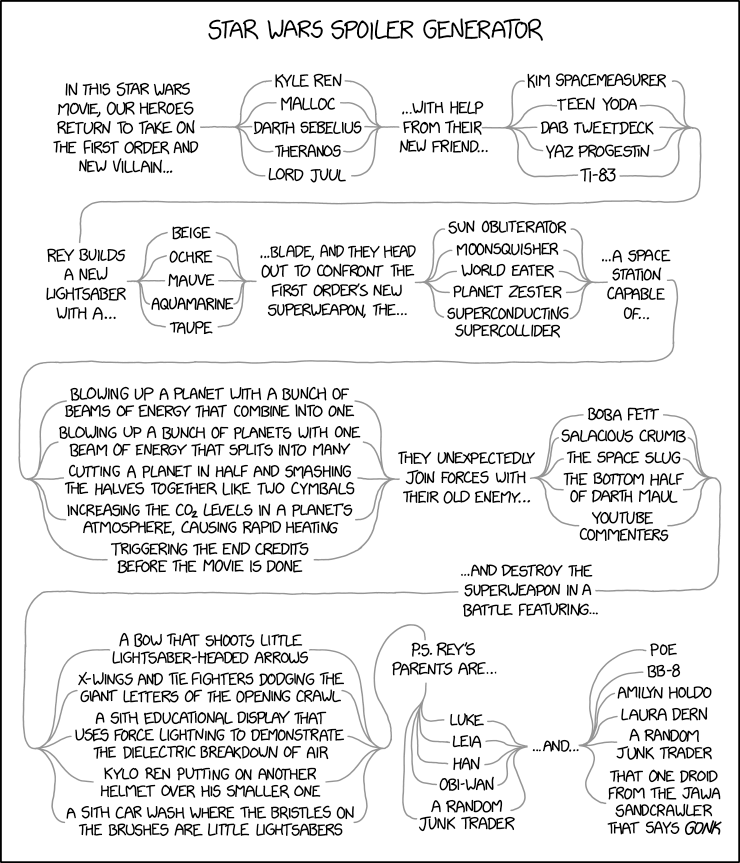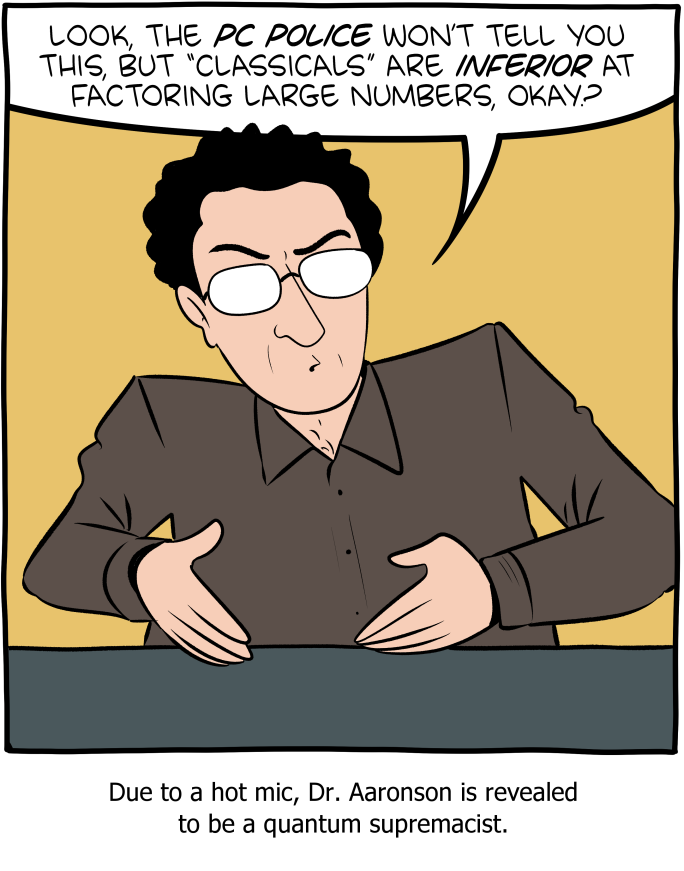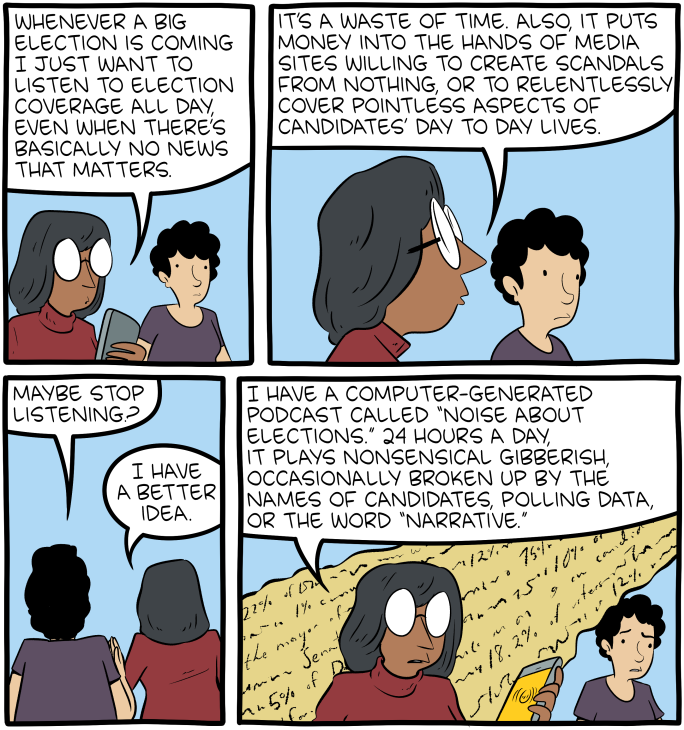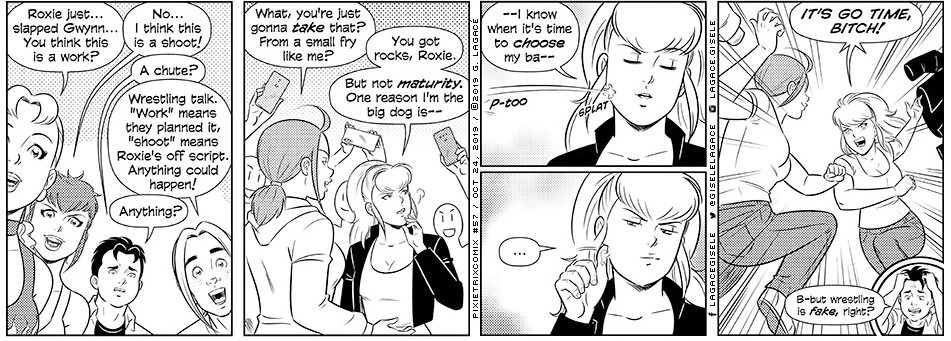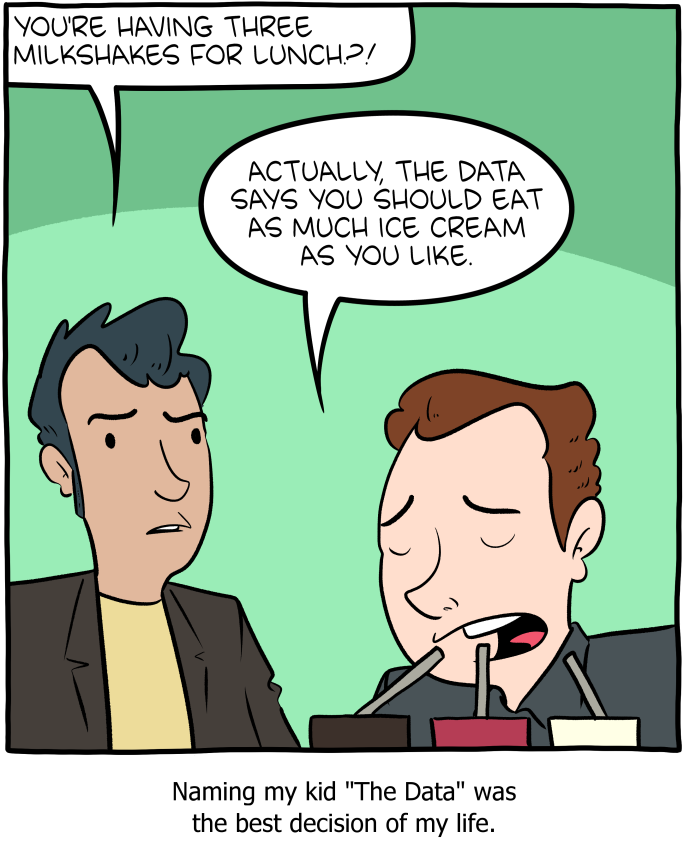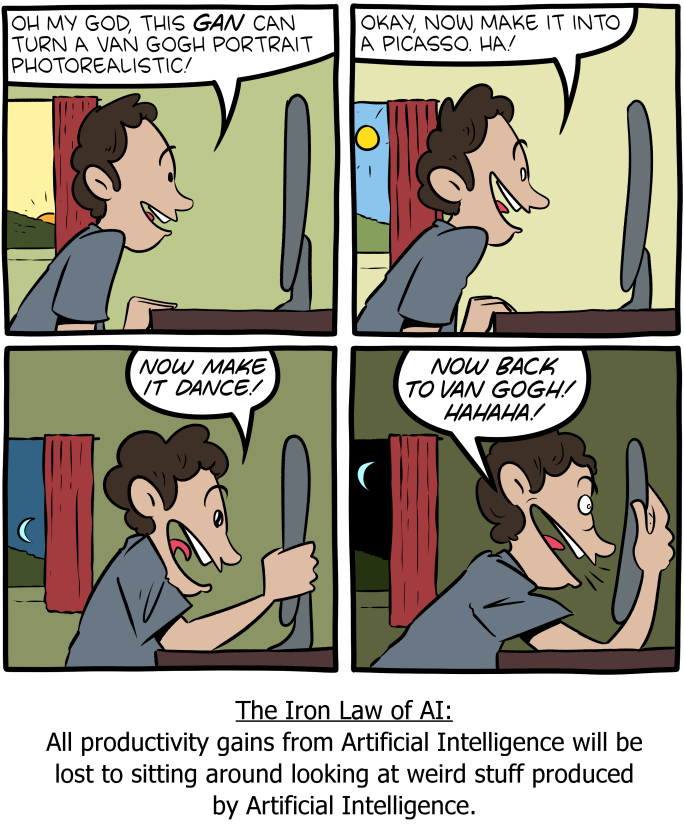Archive for Linguistics in the comics
New Years party themes
Today's xkcd:
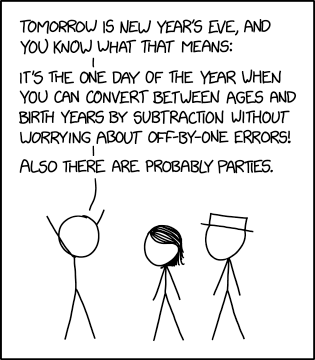
The mouseover title: ""Off-by-one errors" isn't the easiest theme to build a party around, but I've seen worse."
Read the rest of this entry »
Long ago, in a narratology far away…
Louisa Shepard, "‘May the force be with you’ and other fan fiction favorites", Penn Today 12/18/2019:
Starting with Star Wars, Penn researchers create a unique digital humanities tool to analyze the most popular phrases and character connections in fan fiction. […]
The Penn team started with the script of “Star Wars: The Force Awakens” and created algorithms to analyze the words in the script against those in millions of fan fiction stories. The unique program identifies the most popular phrases, characters, scenes, and connections that are repurposed by these writers and then displays them in a simple graph format.
The results are now available on their “fan engagement meter” at https://fanengagement.org.
Serendipitously, today's xkcd:
Read the rest of this entry »
Quantum Supremacy
For the past couple of months, the phrase "Quantum Supremacy" has been on my to-blog list, based on points and counterpoints like "Google scientists say they’ve achieved ‘quantum supremacy’ breakthrough over classical computers" (WaPo 10/23/2019) and "IBM Says Google’s Quantum Leap Was a Quantum Flop" (Wired 10/21/2019). My interest, at least on the LLOG dimension, was not in the argument about how difficult a particular problem is for classical computers, but rather in the use of the word supremacy.
Now I can take this one off the stack, because a recent SMBC does a better job than I would have:
Read the rest of this entry »
"Knock it off, algorithms!"
An experience that's become all too common — as documented in Zits for 11/25 through 11/28:
Read the rest of this entry »
Useful terms from professional wrestling politics
Our current president learned the art of the "promo" during his days in professional wrestling. For those who many be unfamiliar with that culture, I recommend the Wikipedia Glossary of Professional Wrestling terms — or, as a place to start, the terminology illustrated in this strip from Pixie Trix Comix:
From the Wikipedia Glossary:
work
- (noun): Anything planned to happen, or a "rationalized lie". The opposite of shoot.
- (verb): To methodically attack a single body part over the course of a match or an entire angle, setting up an appropriate finisher.
- (verb): To deceive or manipulate an audience in order to elicit a desired response.
shoot
When a wrestler or personality deliberately goes off-script, either by making candid comments or remarks during an interview, breaking kayfabe, or legitimately attacking an opponent.
worked shoot
The phenomenon of a wrestler seemingly going "off script", often revealing elements of out-of-universe reality, but actually doing so as a fully planned part of the show. A notable example of a worked shoot is CM Punk's pipebomb promo on the June 27th, 2011 episode of Monday Night Raw.
Read the rest of this entry »
Where the magic happens
From today's SMBC, an idea about AI that's obvious in retrospect but seems to be new:
Read the rest of this entry »
The Iron Law of AI
Today's SMBC:
Mouseover title: "The other day I was really freaked out that a computer could generate faces of people who DON'T REALLY EXIST, only to later realize painters have been doing this for several millenia."
Read the rest of this entry »
Literary opinions
Today's xkcd:
Mouseover title: "If I really focus, I can distinguish between John Steinbeck and John Updike, or between Gore Vidal and Vidal Sassoon, but not both at once."
Read the rest of this entry »

